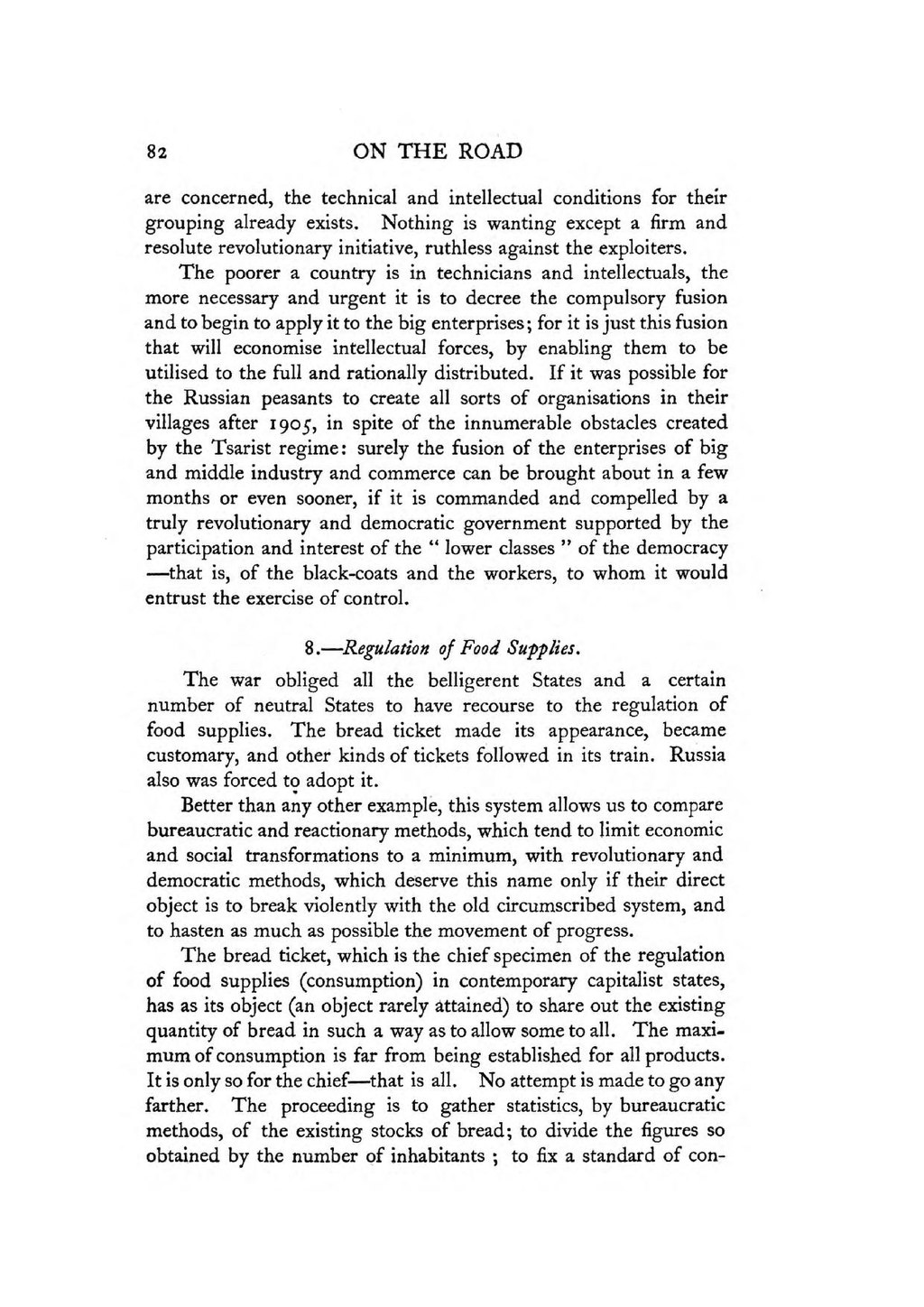are concerned, the technical and intellectual conditions for their grouping already exists. Nothing is wanting except a firm and resolute revolutionary initiative, ruthless against the exploiters.
The poorer a country is in technicians and intellectuals, the more necessary and urgent it is to decree the compulsory fusion and to begin to apply it to the big enterprises; for it is just this fusion that will economise intellectual forces, by enabling them to be utilised to the full and rationally distributed. If it was possible for the Russian peasants to create all sorts of organisations in their villages after 1905, in spite of the innumerable obstacles created by the Tsarist regime: surely the fusion of the enterprises of big and middle industry and commerce can be brought about in a few months or even sooner, if it is commanded and compelled by a truly revolutionary and democratic government supported by the participation and interest of the "lower classes" of the democracy—that is, of the black-coats and the workers, to whom it would entrust the exercise of control.
8.—Regulation of Food Supplies.
The war obliged all the belligerent States and a certain number of neutral States to have recourse to the regulation of food supplies. The bread ticket made its appearance, became customary, and other kinds of tickets followed in its train. Russia also was forced to adopt it.
Better than any other example, this system allows us to compare bureaucratic and reactionary methods, which tend to limit economic and social transformations to a minimum, with revolutionary and democratic methods, which deserve this name only if their direct object is to break violently with the old circumscribed system, and to hasten as much as possible the movement of progress.
The bread ticket, which is the chief specimen of the regulation of food supplies (consumption) in contemporary capitalist states, has as its object (an object rarely attained) to share out the existing quantity of bread in such a way as to allow some to all. The maximum of consumption is far from being established for all products. It is only so for the chief—that is all. No attempt is made to go any farther. The proceeding is to gather statistics, by bureaucratic methods, of the existing stocks of bread; to divide the figures so obtained by the number of inhabitants; to fix a standard of con-
